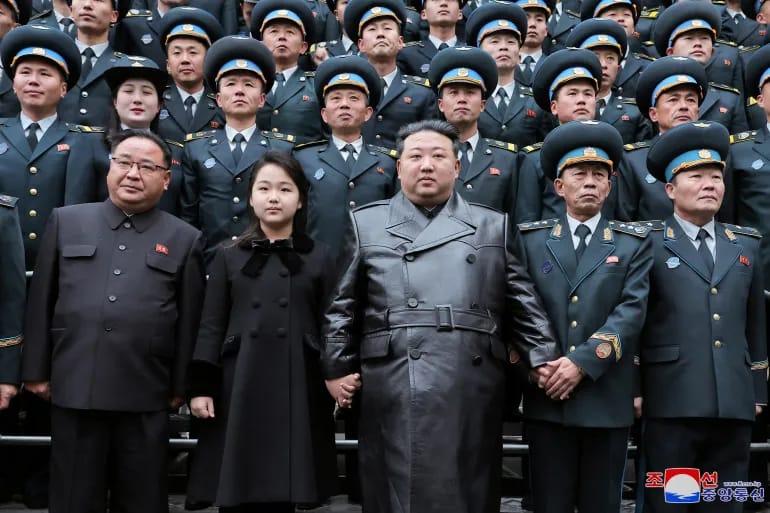North Korea has ushered in what its leader, Kim Jong Un, heralds as a “new era of a space power” after the triumphant launch of its first-ever military spy satellite, Malligyong-1. The provocative move has not only defied United Nations sanctions but also escalated tensions on the Korean Peninsula, prompting strategic responses from neighboring nations. As Pyongyang celebrates this milestone, the geopolitical landscape undergoes shifts, setting the stage for a potentially volatile future.
Defiant Declarations and Global Concerns
Kim Jong Un’s triumphant celebration of the satellite launch reverberated through official channels, with the Korean Central News Agency (KCNA) quoting him asserting the launch as a “full-fledged exercise of the right to self-defence.” The event, banned under UN sanctions targeting North Korea’s ballistic missile program, drew swift reactions globally. Secretary of State Antony Blinken cautioned against the deepening ties between North Korea and Russia, labeling them as “growing and dangerous.” As geopolitical tensions intensify, Beijing, North Korea’s main ally, faces mounting pressure to advocate for restraint.
Escalating Peninsula Tensions and Regional Responses
The satellite launch has not only strained relations between North and South Korea but has also led to the suspension of the 2018 joint military agreement designed to stabilize cross-border relations. Seoul, responding to the provocations, has partially withdrawn from the agreement, prompting Pyongyang to announce a complete suspension. The repercussions are felt regionally, prompting the foreign ministers of South Korea, Japan, and China to convene for their first trilateral talks since 2019. Against the backdrop of deepening security ties between Tokyo and Seoul with Washington, and concerns over North Korea’s military development and its relationship with Russia, the ministers plan extensive discussions in the southern port city of Busan.
Kim’s ‘Paternal Love’ and National Celebrations
Amid the diplomatic storm, North Korean state media released images showcasing Kim Jong Un’s apparent paternal pride and celebration of the successful launch. The leader, accompanied by his daughter, commended scientists and space program workers at the National Aerospace Technology Administration (NATA). The images revealed a reception attended by top military and political officials, where attendees, including Kim’s family, donned T-shirts emblazoned with NATA’s logo. The fervent cheers expressed gratitude to the “great father” who ensured the satellite’s successful launch. These visual representations underline the domestic significance of the event, reinforcing Kim’s image as a leader steering North Korea towards technological milestones.
As North Korea revels in the triumph of its military satellite launch, the international community braces for the repercussions of this audacious move. The geopolitical chessboard witnesses strategic shifts, with regional alliances and tensions evolving in response to Pyongyang’s assertive actions. The trilateral talks scheduled among South Korea, Japan, and China underscore the urgency of addressing the escalating situation, even as the world anxiously monitors the unfolding developments on the Korean Peninsula.
















